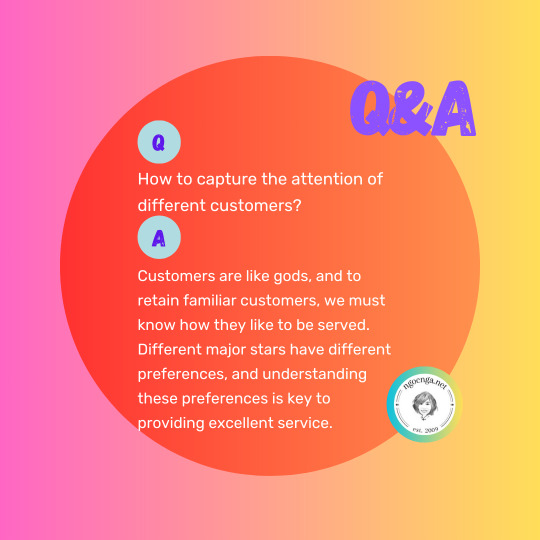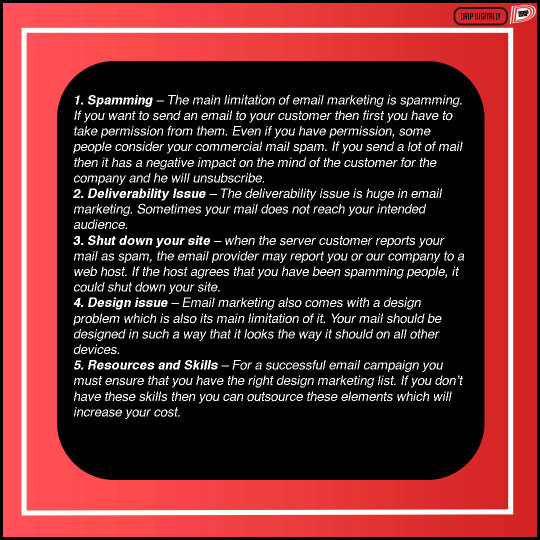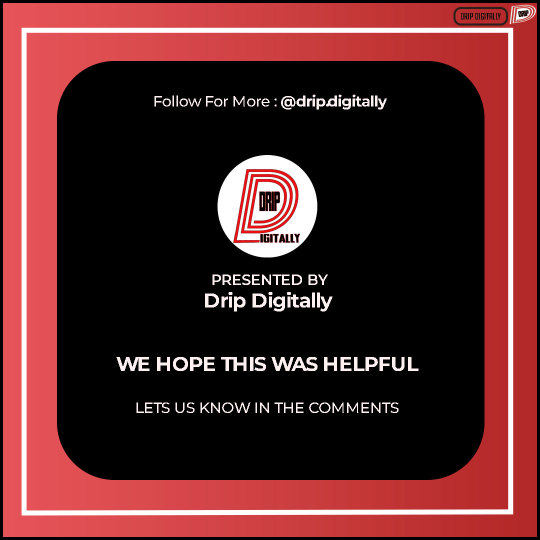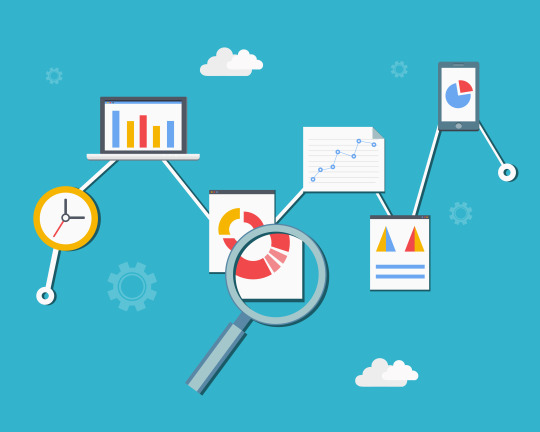#PersonalizationStrategy
Explore tagged Tumblr posts
Text
Turn Browsers into Buyers with a Smart Recommendation Engine
In a competitive eCommerce landscape, product discovery isn't luck — it's data-driven precision.
This blog on ecommerce recommendation engine reveals how top brands boost sales and customer retention by: 🧠 Understanding user behavior patterns 📦 Suggesting the right product at the right time 📈 Increasing average order value with AI-powered upselling
Whether you’re scaling your D2C brand or building a marketplace, this guide helps you implement the recommendation strategy your customers deserve.
#EcommerceAI#RecommendationEngine#PredictiveAnalytics#CustomerExperience#ProductDiscovery#EcommerceTech#ConversionBoost#DataDrivenGrowth#PersonalizationStrategy#SmartRetail#KodyTechnolab#DigitalCommerce#OnlineShoppingExperience#AIinEcommerce
0 notes
Text
The Psychology of Consumer Behavior: Insights for Effective Marketing Campaigns
In the vast and ever-changing field of digital marketing, understanding the complex workings of consumer behavior is like having the secret key that unlocks the door to success. Behind every click, like, share and purchase lies a complex interplay of psychological factors that drive decision making. In this blog post, we take a journey into the fascinating world of consumer psychology and uncover insights that can take your marketing campaigns to new heights.
Cognitive dance: Insights into consumer decision making
At the heart of every interaction with a consumer is a cognitive dance where perceptions, emotions and motivations intertwine to shape choices. Understanding this complex choreography is the first step in creating effective marketing campaigns.
Perception is reality: Perception forms the basis of consumer behavior. Delve into the psychology of how individuals perceive and interpret marketing messages. Consider the impact of color, typography and display on brand perception and explore the phenomenon of selective attention in a sea of digital noise.
Emotion-driven engagement: Emotions have a decisive influence on decision-making. Discover the power of emotional triggers in marketing, whether it's to evoke nostalgia, evoke empathy or spark curiosity. Explore case studies of brands that struck an emotional chord to make lasting connections.
The paradox of choice: Unravel the psychological paradox that too many options can paralyze decision making. Delve into the concept of decision fatigue and learn how marketers can simplify choice to guide consumers to desired actions.
Social influence and FOMO: Peer pressure is alive and well in the digital age. Explore the psychological underpinnings of social proof and fear of missing out (FOMO) and uncover strategies for harnessing these influences in your marketing efforts.
From Psychology to Strategy: Nudging Behavior in the Digital Space
Understanding consumer psychology is just the beginning. In order for marketers to truly use these insights, they must translate them into actionable strategies that drive consumers to desired outcomes.
Personalization and the power of connection: Explore the psychology of personalization and its role in creating a sense of connection between consumers and brands. Learn how data-driven personalization can lead to higher engagement and conversion rates.
Tactics of scarcity and urgency: Use the principle of scarcity and the psychology of urgency to take immediate action. Learn how limited-time offers, countdown timers, and exclusive offers can get consumers to act fast.
Foundation effect and gamification: Gamify the consumer experience by leveraging the endowment effect, where individuals place more value on items they feel they already own. Discover how interactive experiences and rewards can drive engagement and loyalty.
Primary and subliminal messages: Immerse yourself in the realm of priming, where subtle cues influence subsequent behavior. Read about the psychology of subliminal messages and ethical considerations in consumer decision-making.
Unlocking Consumer Loyalty: The Psychology of Trust and Commitment
Building a loyal customer base is the pinnacle of marketing success. Delve into the psychological factors that drive trust, commitment and long-term brand relationships.
Trust: The basis of loyalty: Explore the role of trust in consumer relationships and explore strategies to create and strengthen trust in a skeptical digital environment.
The power of reciprocity: Understand the principle of reciprocity and how providing value up front can create a sense of commitment in consumers. Discover ways to offer free resources, insights and experiences that pave the way for reciprocity.
Cognitive dissonance and post-purchase satisfaction: Analyze the concept of cognitive dissonance—the discomfort of conflicting thoughts—and how it affects post-purchase behavior. Learn how to take buyer's remorse and turn it into positive brand sentiment.
Brand Storytelling and Identity: Learn how brand storytelling taps into consumers' need for identity and belonging. Explore the psychology of storytelling and how it can foster a sense of community around your brand.
Conclusion: Creating Persuasive Campaigns Through Consumer Insight
As digital marketers, we have the power to influence and shape consumer behaviour. By delving into the depths of consumer psychology, we arm ourselves with invaluable insights that allow us to create campaigns that resonate on a deep level. By understanding perceptions, emotions and motivations and translating that understanding into actionable strategies, we can push consumers down a path that leads not just to conversions, but to true engagement, loyalty and lasting brand connection. So let's take the science of the mind and transform it into the art of digital marketing mastery.
#ConsumerPsychology#MarketingInsights#DigitalMarketing#PsychologyOfChoice#EmotionalMarketing#NudgingBehavior#BrandTrust#CognitiveDance#DecisionMaking#InfluenceMarketing#PersonalizationStrategy#ScarcityTactics#Gamification#TrustBuilding#Reciprocity#BrandStorytelling#CognitiveDissonance#LoyaltyMarketing#BehavioralEconomics#DigitalCampaigns
0 notes
Text

Q: How to capture the attention of different customers? 🎯🤝🌐
A: Customers are like gods, and to retain familiar customers, we must know how they like to be served. Different major stars have different preferences, and understanding these preferences is key to providing excellent service.
Read details at https://ngocnga.net/zi-wei-dou-shu-qa-how-to-capture-the-attention-of-different-customers/?utm_source=tumblr&utm_medium=social&utm_campaign=ziwei
#CustomerEngagement#PersonalizationStrategies#DiverseAudienceApproach#ziweidoushu#zwds#purplestar#purplestarastrology#chineseastrology#chinesemetaphysics#metaphysics#astrology
1 note
·
View note
Text
The Impact of Technology on Customer Analytics Trends
Originally Published on: QuantzigTech’s Role in Shaping Customer Analytics Trends and Insights
In today's data-driven landscape, customer analytics undergoes significant evolution, largely propelled by technological advancements. Foundational elements such as artificial intelligence, machine learning, big data processing, and predictive models are reshaping how businesses perceive and interact with their customer base. Let's explore how technology shapes trends in customer analytics and insights, uncovering innovative strategies that redefine customer interactions and drive business growth. #CustomerAnalytics #TechTrends
Empowering Insights through Technological Innovations
Technological advancements empower businesses to derive invaluable insights from customer experiences, product interactions, and user satisfaction. Real-time customer insights, facilitated by natural language processing and cloud-based services, provide guidance in understanding customer journeys and behaviors. It's vital for businesses to harness insights from customer and product experiences, alongside user satisfaction, to adeptly navigate multi-channel interactions. #RealTimeInsights #DataUtilization
Addressing Critical Challenges in Customer Data Management
A leading e-commerce company in Europe faced several challenges in managing customer data and implementing personalized strategies. Inadequate data management hindered their ability to efficiently organize and utilize customer data, resulting in insufficient personalization and difficulties in identifying repeat customers. Implementing no-code growth tools and involving non-technical roles became imperative to address these challenges. Advanced algorithms and tools were deployed to analyze data and enhance customer engagement and loyalty. #DataManagementChallenges #PersonalizationStrategies
Revolutionizing Insights and Decision-Making with Quantzig
Quantzig, an advanced analytics provider, offers comprehensive solutions to understand and engage with customers effectively. From segmentation analysis to predictive modeling, their platform drives personalized marketing strategies, enhances customer satisfaction, and optimizes business performance. Leveraging real-time insights and cloud-based services, businesses can stay ahead of customer analytics trends and enhance user experiences through self-service analytics tools. #QuantzigSolutions #ActionableInsights
Unveiling Growth Opportunities with Quantzig's Approach
Quantzig's approach involves establishing a robust Customer 360 Datamart to amalgamate various data categories and gain profound insights into customer dynamics. Utilizing advanced methodologies and real-time customer insights, they identify customers' behaviors and preferences, enabling personalized engagement strategies. Cloud-based services ensure scalability and flexibility in handling diverse data sources, while multi-channel insights provide a comprehensive analysis of customer interactions. #Customer360 #PersonalizedEngagement
Maximizing Campaign Performance for Enhanced Results
Tailored activation strategies were formulated for both website and campaign touchpoints to enhance engagement, personalization, and conversion rates. This optimization led to a 22% uplift in response rates for targeted ROI maximization campaigns, driving revenue growth and fostering enduring relationships. #CampaignOptimization #RevenueGrowth
Overcoming Implementation Challenges with Innovative Solutions
Challenges such as incomplete data coverage, business dilemmas, data integration, and scalability are addressed through next-generation customer analytics solutions. By leveraging predictive analytics and cloud-based platforms, organizations can navigate these challenges effectively and stay ahead of the curve. #ImplementationChallenges #NextGenAnalytics
Conclusion: Embracing Technological Advancements for Customer Success
In conclusion, technology plays a pivotal role in shaping customer analytics trends, driving insights, and empowering businesses to understand and engage with their customers effectively. By embracing tech-driven approaches, organizations can navigate challenges, optimize strategies, and drive sustainable growth in today’s competitive landscape.
Contact us.
0 notes
Text
The Power of AI in Marketing Analytics
The Power of AI in Marketing Analytics 👏 Artificial Intelligence (AI) has revolutionized various industries, and marketing is no exception. With its ability to analyze vast amounts of data quickly and accurately, AI has become an invaluable tool for marketers looking to gain insights into their target audience's behavior. In the world of marketing analytics, AI plays a crucial role in helping businesses make informed decisions based on real-time data. By leveraging machine learning algorithms, companies can identify patterns and trends that would be nearly impossible for humans alone to detect. One area where AI shines is customer segmentation. Traditionally, marketers relied on manual processes or basic demographic information when dividing customers into groups. However, with the power of AI-driven analytics tools like predictive modeling techniques, and clustering algorithms, businesses can now segment their audiences more effectively based on factors such as purchasing habits or online behaviors. Another significant benefit brought by incorporating artificial intelligence into marketing analytics is personalized targeting strategies. Through advanced analysis methods like natural language processing (NLP), brands can understand consumer sentiment from social media posts or product reviews better than ever before. By analyzing this unstructured text data using NLP-powered sentiment analysis models,
companies are able to gauge public opinion about their products/services swiftly and adjust accordingly - whether it means improving certain features or addressing negative feedback promptly!💯📈 The use cases go beyond just understanding your existing customers; they also extend towards predicting future outcomes! Predictive modeling powered by machine learning allows you not only to forecast sales but also anticipate churn rates among subscribers so that proactive measures may be taken ahead of time!🎉💡 Pricing optimization becomes another domain where intelligent systems prove valuable: through dynamic pricing solutions, businesses can adjust their prices based on various factors such as demand, competition, and customer behavior. This ensures that companies maximize revenue while remaining competitive in the market. Furthermore, AI-driven marketing analytics tools enable marketers to track and measure campaign performance more accurately than ever before. By analyzing data from multiple sources like social media platforms or website traffic logs using machine learning algorithms,
marketers gain valuable insights into which channels are driving conversions and where adjustments may be needed for optimal results!💡📊 In conclusion, incorporating artificial intelligence into marketing analytics has transformed how brands understand their customers' behaviors and preferences. From personalized targeting strategies to predictive modeling techniques
and dynamic pricing solutions - AI offers a wide range of benefits that help businesses make smarter decisions faster! With its ability to process vast amounts of data quickly and identify patterns humans might miss,
AI is undoubtedly shaping the future of marketing analytics.🤓✨ #AIMarketing #MarketingAnalytics #ArtificialIntelligence #DataAnalysis #PersonalizationStrategies #PredictiveModeling#DynamicPricingSolutions Ryan Huang www.RyanHuang.io
0 notes
Text



Unveiling the Truth: Understanding the Limitations of Email Marketing!
Email marketing is a powerful tool for connecting with your audience, but it's crucial to acknowledge its limitations. Let's shed light on the challenges that email marketing faces, empowering you to overcome them and optimize your marketing efforts!
Follow me @dripdigitally for more tips like this!
#EmailMarketingLimitations#DigitalMarketingInsights#EngagementChallenges#EmailDeliverability#MobileOptimization#DataDrivenMarketing#EmailMetrics#PrivacyCompliance#CreativeConstraints#PersonalizationStrategies#MarketingChallenges#MarketingInsights#EmailMarketingTips#DigitalMarketingSuccess#CustomerEngagement#SegmentationStrategy#EmailListManagement#MarketingEfficiency#EmailCampaigns#MarketingStrategy#EmailMarketing101#EmailMarketingStrategy#MarketingObstacles#EmailMarketingInsights#EmailMarketingSolutions#MarketingLimitations#MarketingAnalysis
2 notes
·
View notes
Text
Personalization at Scale: Where Do You Measure Up
Personalization at Scale: Where Do You Measure Up #personalizationstrategy #marketingstrategy #buyersjourney #webinar #digitalexperience #marketing
Learn how to scale your personalization strategy throughout the customer journey
Wednesday, February 27 at 10am PT/ 1pm ET/ 7pm CET
In a saturated marketplace it is getting harder and harder to stand out from competitors. To be at the forefront of today’s business, marketing personalization is an essential strategy and part of delivering a superior customer experience. And while many…
View On WordPress
0 notes
Text
Navigating a Cookie-Free Future: Customizing Digital Marketing Strategies
In the dynamic world of digital marketing, change is constant. Moving into the future, one of the most significant shifts facing marketers today is the move to a cookie-free environment. With growing privacy concerns and changing regulations, the era of relying on third-party cookies for tracking and targeting is coming to an end. In this blog post, we'll explore the concept of a cookie-free future, its implications for digital marketing, and strategies to adapt and thrive in this evolving environment.

The Cookie Landscape: A Brief Overview
Cookies have long been a drag on online tracking and targeting. These small pieces of data stored in users' browsers allowed marketers to gather information about user behavior, preferences, and interactions. This information, in turn, supported personalized advertising campaigns and optimized user experiences. However, growing concerns about privacy, user consent, and regulatory changes have led to a shift away from this traditional method of tracking.
The Rise of Privacy Regulations
Recent regulatory developments, particularly the General Data Protection Regulation (GDPR) and the California Consumer Privacy Act (CCPA), have focused attention on user data protection and privacy rights. These regulations have ushered in a new era of digital transparency, giving users more control over their personal data. As a result, third-party cookies, often used without the user's express consent, become obsolete.
Implications for Digital Marketers
A cookie-free future presents both challenges and opportunities for digital marketers:
Data Collection and Targeting: Marketers will need to find alternative methods for collecting user data and serving targeted ads as the traditional cookie-based approach becomes less effective.
Personalization: With limitations on data tracking, achieving a personalized user experience will require innovative strategies that respect user privacy while providing relevant content.
Measurement and Analytics: Metrics using third-party cookies, such as attribution and cross-device tracking, will need to evolve to provide accurate statistics in a cookie-free environment.
User Experience: As users become more privacy conscious, brands that prioritize transparent data practices and respectful user experiences will stand out.
Strategies for adapting to a cookie-free landscape
First-Party Data: Focus on collecting and using your own first-party data, obtained through direct interactions with users on your website or in your app. This data is more reliable and ethically obtained.
Contextual Advertising: A move towards contextual advertising, where ads are displayed based on the content of a web page rather than data about individual users.
Consent Driven Marketing: Obtain user's express consent to collect and use data. Implement robust consent management systems to ensure regulatory compliance.
Advanced Technologies: Explore advanced technologies such as machine learning and artificial intelligence to create predictive models that can predict user preferences without invasive tracking.
Collaboration and Partnerships: Partner with publishers and platforms that prioritize user privacy and ethical data practices.
Embrace a Privacy Policy: Position your brand as a champion for user privacy by being transparent about your data practices and respecting user choices.
Conclusion
A future without cookies represents a key moment in the evolution of digital marketing. While change may seem challenging, it also represents a unique opportunity to build more meaningful and considerate relationships with users. By adapting your strategies to meet user expectations and privacy regulations, you can navigate this environment with confidence and continue to deliver valuable experiences to your audience. Embrace this shift and let it inspire you to innovate and discover new ways to connect and engage in a cookie-free world.
#CookielessFuture#PrivacyFirst#DigitalMarketingShift#AdaptAndThrive#DataPrivacy#UserExperience#FirstPartyData#ContextualAdvertising#ConsentDrivenMarketing#EthicalDataPractices#PersonalizationStrategies#InnovativeMarketing#UserPrivacy#MarketingRegulations#DigitalTransformation#UserConsent#DataCompliance#TransparentMarketing#BrandTrust#MarketingInnovation
0 notes